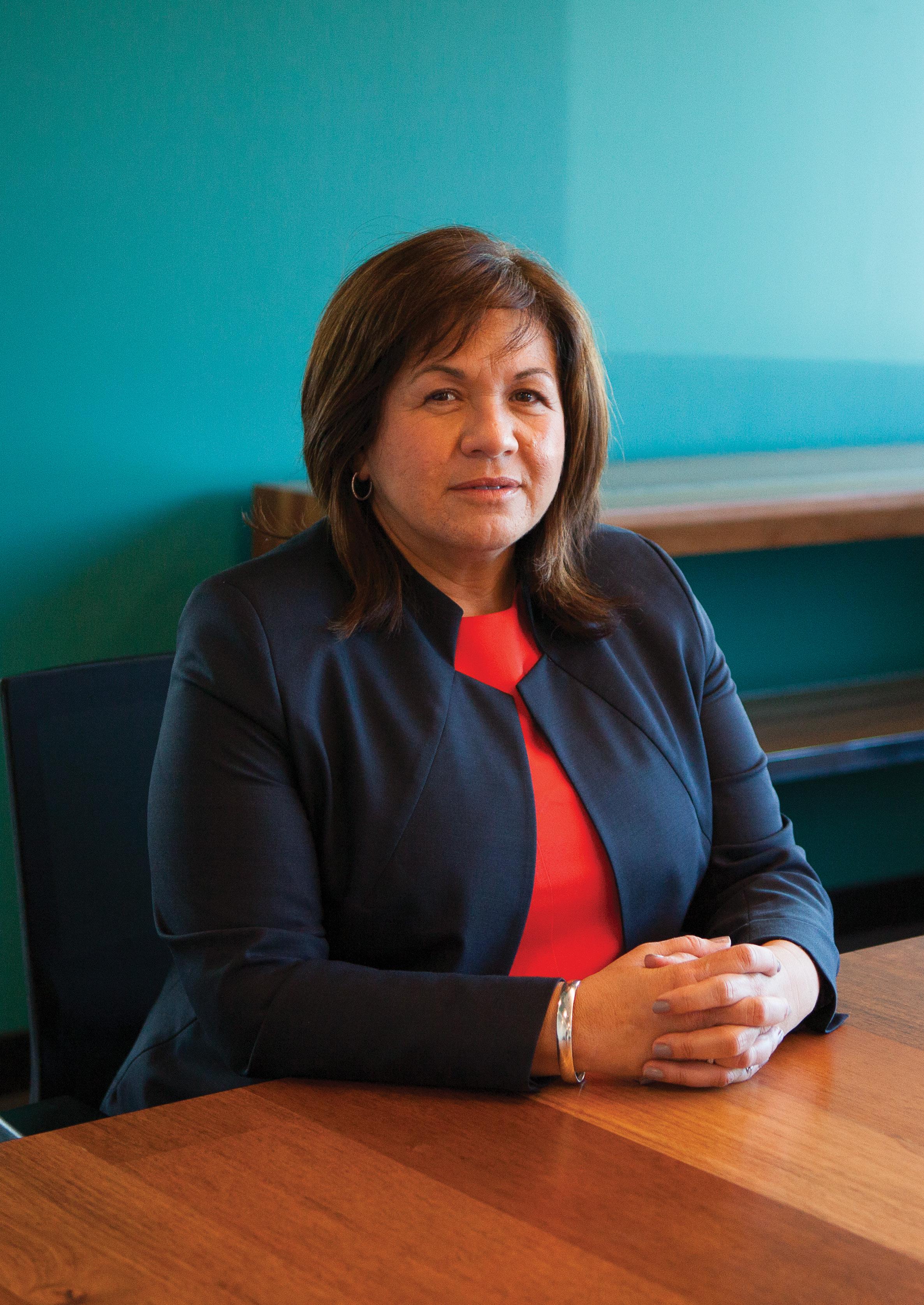
4 minute read
PKW Chair Hinerangi Raumati-Tu'ua steps down
Serving 15 years, a decade of them as Chair, on the Parininihi ki Waitōtara Committee of Management was something Hinerangi Raumati-Tu’ua never expected when she was elected in 2006. But she has decided it is time to step away and make room for a new perspective to join the Board table.
“Good governance is about making room for others to participate and create opportunity for another way of doing things and generally that should add value. I am really pleased with where we are at and have seen lots and lots of opportunity during my tenure and an increased maturity around how we do things,” she says.
Hinerangi has seen the business change and grow considerably during her time, with a different approach to investments, as well as partnering with other Iwi and Māori organisations to collectively build on assets and resources—both aspects of the business that she takes pride in.
“It was something that had been discussed for nearly twenty years, so it is really good to say, well actually, we are doing it and we are really good at it. We have a model that works, that has evolved over the last five years,” she says.
She says the main catalyst for that change was the decision to appoint a general manager, with Dion Tuuta the first to take on the role.
“It seems a long time ago, but it changed how the incorporation was managed. It made such a big difference to how we were perceived. To me, his appointment was a real game changer for PKW and everything that flowed after that.”
Innovation has been a key element of her leadership style, and Hinerangi is particularly pleased with the changes in the way the incorporation reports to its shareholders.
“Te Ara Putanga, our kaupapa evaluation tool, is the framework that we use to measure performance across all the values we hold as an organisation. PKW isn’t just about the bottom line. To me it’s been a real breakthrough. I use it as an example to other Māori entities to show how you can create a model where you aren’t just focused on the financial results. Though they are important, it’s not what everyone wants. Instead, our shareholders want us to show how we are creating other benefits and outcomes through the business,” she says.
“I’m really proud of that but think there is so much more we could be doing around improving our engagement and our approach with our shareholders, our wider community and our Māori community in Taranaki.”
It hasn’t always been plain sailing during her tenure, and Hinerangi recognises that learning from the past mistakes is what really mattered when it came to rebuilding shareholder confidence after the failed investments in the Gabba Project in Australia.
“We learnt about how much risk we are prepared to take, what are we good at, where should we focus? And that’s how we got to the strategic direction that we have been on for the last ten years. So, another highlight for me is the changing of our governance structure to reflect the lessons we’ve learnt,” she reflects.
Looking forward, Hinerangi identifies the impact of climate change and the growing fragmentation of shareholders as the biggest challenges facing the Incorporation.
“We have made some progress with our environmental impact in terms of how we farm. But what climate change means for the Taranaki region, what it means for New Zealand, how it will impact our customers and the world, it’s all such an unknown. We are gearing up in terms of what we should be doing, which includes a response to the Climate Change Commissioner’s report.”
“Being able to maintain a strong connection with our shareholders is going to be one of our really big challenges going forward, too. As every shareholding gets smaller and smaller and the number of shareholders gets bigger and bigger, we have to think about new approaches. The challenge will never go away so how do we think about it inter-generationally?”
“Building capability in the Māori community has always been a big challenge, too, but I believe our education grants are an investment that will benefit all of Taranaki. It may take two generations to build the depth of specialist skills needed, but we are heading in the right direction.”
Although she is leaving PKW, Hinerangi’s association with Taranaki will remain strong as she is the chair for Te Kīwai Mauī o Ngāruahine Limited, Te Pou Herenga Pakihi LP, Ngāti Mutunga Investment Company, as well as a member of the Taranaki Iwi Holdings Limited Board.
“I’ve absolutely loved being part of this journey. Our whānau grew up in Waikato and loved being Taranaki but we didn’t get many opportunities to express it often. My being involved with PKW for the last 15 years is all about that,” she says.
“My deepest thanks to Warwick (Tauwhare-George, PKW CEO) and his team for the outstanding work over the last five years. It’s been a real privilege. My best wishes to the Committee of Management and our independent Directors. Thank you all so much for your commitment to PKW.”










